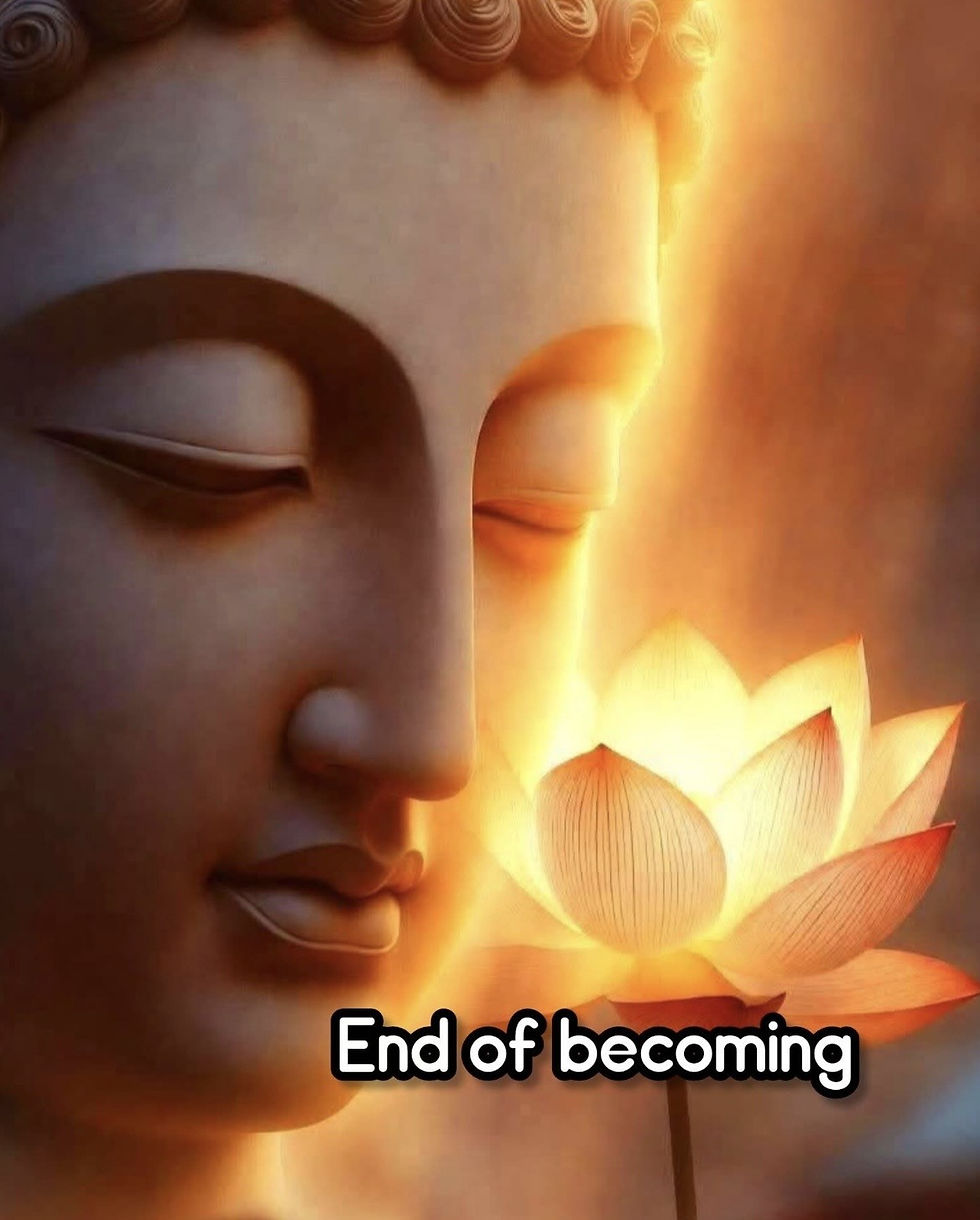What do we bring from past life when we reborn?
- -
- Oct 7, 2023
- 2 min read

By Victor M Fontane
When a soul or consciousness incarnates or is born brings with him accumulated karma from past life and the aggregates or skandas and tendencies or samskaras that will rule his incarnation.
But what are they?
Karma or the consequences of his actions in past life will be experience in the new reborn. So karma is created through our thoughts, speech and physical actions.
Aggregates or skandas are, according to Buddhist thought, the five elements that sum up the whole of an individual's mental and physical existence. The self (or soul) cannot be identified with any one of the parts, nor is it the total of the parts.
form (or material image, impression) (rupa)
sensations (or feelings, received from form) (vedana)
perceptions (samjna)
mental activity or formations (sankhara)
consciousness (vijnana)
Samskaras are the subtle impressions of our past actions. As long as we are alive, we continuously perform actions, but not all of them contribute to the formation of samskaras. Actions that we perform with full awareness are the ones that make the greatest impression on our mind. In other words, it is the intention behind the action that gives power to that action. This process is beautifully explained by the literal meaning of the word “samskara.” The prefix sam means well planned, well thought out, and kara means “the action under-taken.” Thus, “samskara” means “the impression of, the impact of, the action we perform with full awareness of its consequences.” When we perform such an action, a subtle impression is deposited in our mindfield. Each time the action is repeated, the impression becomes stronger. This is how a habit is formed. The stronger the habit, the less mastery we have over our mind when we try to execute an action that is contrary to our habit patterns. We all have seen how our habit patterns subtly yet powerfully motivate our thoughts, speech, and actions.
In Indian philosophy and some Indian religions, samskaras or sanskaras are mental impressions, recollections, or psychological imprints. In Hindu philosophies, samskaras are a basis for the development of karma theory.
Samskaras enwrap the entire journey of a human life cycle. There are 4 samskaras before the birth of a newborn, 11 samskaras during the course of their life, and 1 samskara after the soul leaves the body. Love and happiness multiply when they are shared.



Comments